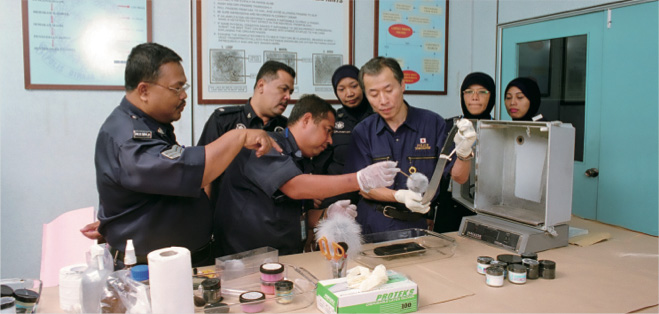Japan's Official Development Assistance White Paper 2012
(4) Policy Formulation and Institution Building
For the sustainable growth of developing countries, not only the establishment of the socio-economic infrastructure, but also the policy formulation, institution building, and human resources development are important. It is essential to support eradicating corruption, legal and institutional reforms, improving the efficiency and transparency of public administration, and strengthening the administrative capacity of local governments.
<Japan’s Efforts>
As part of its support in policy formulation and institution building, Japan provides assistance for development of the legal system. Improvement of the legal system serves as the foundation for development of the country through self-help efforts that are based on good governance. Assistance for this sector is a typical example of person-to-person cooperation between Japan and the recipient countries, and plays a role in the "Visibility of Japanese Aid."
In addition, improvement of the legal systems in developing countries through such measures is an important effort as it will also improve the work environment for Japanese companies. Japan's assistance for the improvement of legal systems comes through its "soft power," and serves as the underpinning for strengthening Asia's potential for growth.
Moreover, for democratic development Japan supports the institution building for legal, judicial, administrative, public service, and police systems, support for the implementation of democratic elections, strengthening of civil society, and aid improvement of women's status. Japan also provides support for the prevention of corruption, the development of statistical capabilities, and the enhancement of the abilities of local governments.
For the issues of criminal justice Japan also supports the training and seminars for professionals in criminal justice of developing countries in Asia and the Pacific through the United Nations Asia and Far East Institute for the Prevention of Crime and the Treatment of Offenders (UNAFEI).
Japan provides assistance for the policy formulation and institution building not only for specific projects, but also for financing the national accounts of local government.
In the area of capacity building of police agencies that constitute a cornerstone in maintenance of domestic security, Japan provides support with a combination of transfer of the knowledge and technology based on experiences of the Japanese police in international cooperation, and provision of equipment and maintenance of facilities, while emphasizing the development of human resources, including improvement of systems and enhancement of administrative capabilities. The National Police Agency dispatches experts to and accepts trainees mainly from Asian countries such as Indonesia and the Philippines. Through this, Japan strives to transfer the attitudes, investigative abilities, and forensics technology of the democratically controlled Japanese police, who are trusted by the Japanese people.

A Japanese expert provides technical guidance on fingerprinting and forensics at the Malaysian National Police Crime Laboratory in an effort to improve the forensic investigation capabilities of the Malaysian National Police. (Photo: Arase Sugawara/JICA)
●Cambodia
Legal and Judicial Development Project
Technical Cooperation Project
The Cambodian Civil Code went into effect on December 21, 2011. Because this law was drafted over the span of 12 years with the help of Japanese technical cooperation, Professor Emeritus Akio Morishima of Nagoya University and a number of other Japanese concerned were honored with friendship insignia at the memorial ceremony.
The Pol Pot regime committed genocide against lawyers and other intellectuals in Cambodia during its reign in the late 1970s. Most of the country's legal literature was burned, leaving Cambodia with nearly nothing in terms of human resources and legal systems. Under these circumstances, a constitution was first established under UN supervision after the end of the civil war. Starting with support from countries and organizations on the development of fundamental laws, Cambodia next developed a penal code for national public order and a civil code for everyday life. At that time, having heard word of the legal system development and judicial cooperation successes of Japan's ODA in neighboring Viet Nam, Cambodia decided to ask Japan to assist with the formulation of its own civil code.
In 1999, Japan started work on the development of the Civil Code. At the same time, advanced Western countries assisted in developing a legislative system, having their advisors draft laws in a very short time following a simple investigation. Japan's assistance, on the other hand, took a more unique approach to ensure that the laws would function in Cambodian society. Japan developed human resources for the drafting and application of laws and consulted with Cambodian legal authorities while the two countries developed the laws jointly. Japan would ultimately collaborate with Cambodia on the project for 12 years, by dispatching jurists, judges, lawyers, and Ministry of Justice staff members to not only draft laws, but also to offer parliamentary support for their enactment.
The application of this civil code is also of benefit to Japanese companies. Because it was modeled after Japanese laws, a number of systems are similar to those of Japan. Furthermore, a Japanese version also exists, allowing Japanese companies to easily understand Cambodian laws. The hope is that the application of the civil code will establish an environment for investment that will lead to Japanese corporate expansion into the country and increased Cambodian development.

Cambodian Civil Code, Code of Civil Procedure (Photo: JICA)
